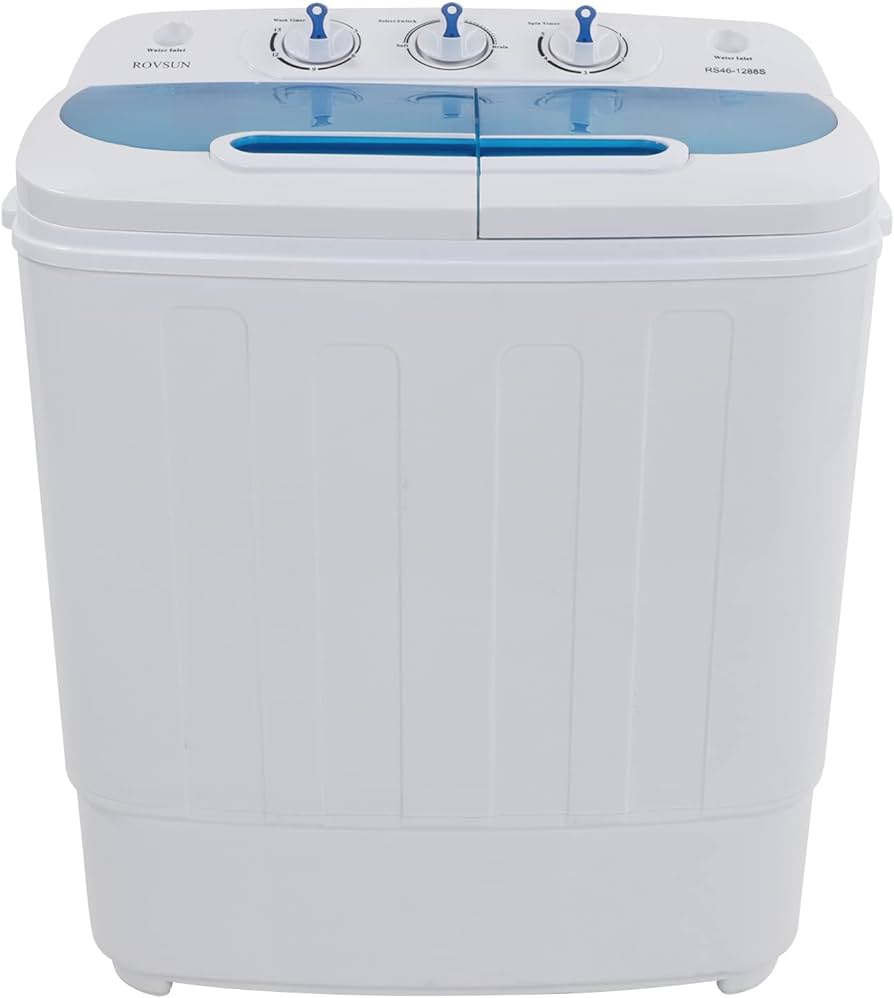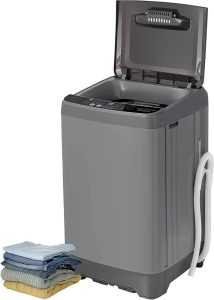What is the disadvantage of impeller washing machine?
Introduction
Impeller washing machines offer efficient cleaning, gentle fabric care, and energy savings, making them a popular choice for many households. However, like any appliance, they have their own limitations and considerations. In this guide, we will delve into the disadvantages of impeller washing machines, exploring factors such as load capacity, tangling issues, limited washing options, and potential challenges with certain fabrics to help you make an informed decision.

What is the disadvantage of impeller washing machine?
Load Capacity and Bulkier Items
1.1. Limited Load Capacity
Impeller washing machines generally have a smaller load capacity compared to agitator washers. The design of the impeller, with its rotating blades, takes up space within the drum, reducing the available area for clothes. This limitation can be restrictive for households with larger loads or those who frequently wash bulky items such as comforters or blankets.
1.2. Challenging Bulky Items
Due to the limited space and the absence of a central agitator column, impeller washing machines may struggle to effectively clean and distribute water around bulky items. Large or tightly packed loads may result in uneven cleaning, poor agitation, or inadequate water coverage. It may be necessary to manually redistribute or separate bulky items for better cleaning results.
Tangling Issues and Delicate Fabrics
2.1. Potential Tangling
Impeller washing machines, while designed to be gentler on fabrics, can still cause tangling, particularly with certain types of garments. The forceful water flow created by the impeller, combined with the spinning motion, may lead to clothes getting tangled or twisted during the wash cycle. It is important to carefully load delicate or easily tangled items to prevent damage or entanglement. A propeller washer should not leak during normal use. However, if there is any mechanical failure, damage, clogging, or incorrect use, it can lead to water leakage. Therefore, if you have a leaking problem with your propeller washer, get it checked and seek professional repair help.
2.2. Delicate Fabric Considerations
While impeller washers are generally considered gentler on fabrics, certain delicate fabrics or garments may still require special attention. Thin or lightweight fabrics, such as lace or sheer materials, can be more prone to tangling or damage in an impeller washer. It is advisable to use delicate or hand wash cycles, or consider hand washing such items separately to ensure their longevity.
Limited Washing Options and Specialty Cycles
3.1. Lack of Specialty Cycles
Impeller washing machines may have limited options when it comes to specialty wash cycles. While they typically offer standard cycles such as regular, delicate, or heavy-duty, they may not provide as many specialized cycles for specific fabric types or stain treatments. If you require specialized cycles, such as allergen removal or sanitize settings, an impeller washer may not offer the range of options you desire.
3.2. Reduced Control and Customization
Impeller washers often have fewer user-adjustable settings compared to other types of washing machines. The focus is on simplicity and efficiency, which means fewer options for customization or control over factors such as water level, spin speed, or cycle duration. Users who prefer more control or have specific preferences may find this limitation restrictive.
Challenges with Certain Fabrics
4.1. Limited Fabric Compatibility
While impeller washers can handle a wide range of fabrics, there may be limitations with certain types of materials. Fabrics that require extra care, such as wool, silk, or garments with delicate embellishments, may not be suitable for regular washing in an impeller machine. It is important to refer to the manufacturer’s guidelines and garment care labels to ensure compatibility.
4.2. Stain Treatment Limitations
Impeller washing machines may have limitations when it comes to treating specific stains. The forceful water flow created by the impeller may not be sufficient to remove stubborn or heavily soiled stains. Users who frequently encounter stubborn stains may need to employ pre-treatment methods or consider alternative stain removal techniques.
Noise and Vibration
5.1. Noise Levels
While impeller washing machines are generally quieter compared to agitator washers, they can still produce a noticeable level of noise during operation. The rotation of the impeller blades, water movement, and spinning action may generate sound that can be more pronounced in certain models or when the machine is not properly leveled. This consideration is particularly relevant for households where noise levels are a concern.
5.2. Vibration and Stability
Impeller washing machines can experience more vibration and movement during operation compared to agitator washers.
Conclusion
While impeller washing machines offer efficient cleaning, fabric care, and energy savings, they do have some disadvantages that need to be considered. These include limitations in load capacity and handling bulkier items, the potential for tangling with certain fabrics, limited washing options and specialty cycles, challenges with certain fabric types, noise and vibration concerns, and reduced control and customization.
When considering an impeller washing machine, it is important to assess your specific needs, laundry preferences, and the types of fabrics you frequently wash. Take into account factors such as load size and composition, the delicacy of garments, the need for specialized cycles or customization options, and noise and vibration tolerance. By carefully weighing these considerations, you can make an informed decision and select the washing machine that best suits your requirements and preferences.

